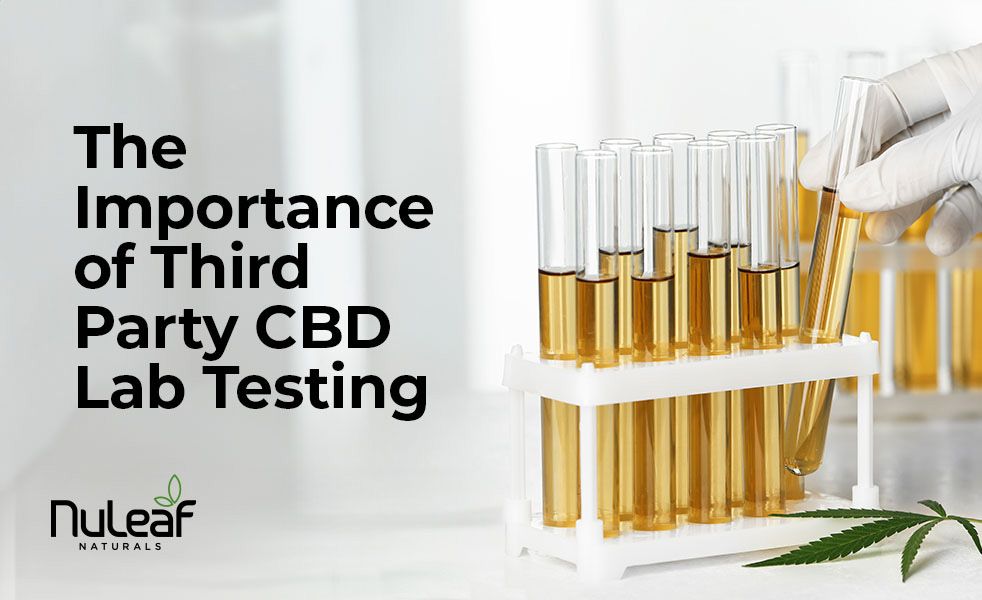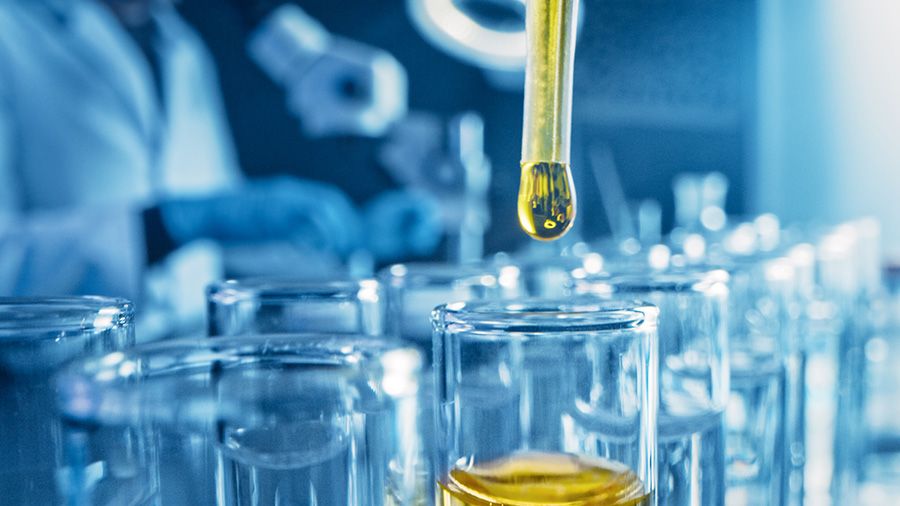The Importance of Third-Party CBD Lab Testing

If you’ve been hearing all about the cannabinoid CBD recently, you’re not alone. CBD has taken the world by storm and, since its legalization in numerous countries, has exploded in popularity.
However, rapid growth also comes with some risks. Without proper quality controls or a standard for CBD products, low-quality products can do more harm than good, so third-party lab testing is more crucial now than ever. It isn’t a “nice-to-have,” it is a “must-have”!
In this blog post, we’ll examine third-party lab testing and why it is so important in the ever-growing CBD industry.
What is CBD Lab Testing?
Although the FDA (Food and Drug Administration) regulates delta-9 THC for medical use, they do not regulate CBD products. Because of the lack of regulation, many unscrupulous manufacturers can jump on the CBD bandwagon and produce inferior CBD products that don’t measure up to quality controls or contain contaminants.
They can then pass them off as legitimate products despite no control over the purity, other ingredients, or potency. These products can not only be fraudulently labeled but also be downright dangerous to consume.
That’s where third-party lab testing comes in. CBD testing involves using a neutral, independent laboratory with no affiliation to the manufacturer. The third-party lab will conduct a series of tests for the CBD products’ purity, potency, and overall quality.
How CBD Lab Testing Works
A sample of each type of CBD product, whether it is CBD oils, topicals, edibles, or supplements, is sent to the third-party lab. The lab then conducts tests on the samples to determine the quality of the product, and in particular, cannabinoid profiling.
Cannabinoid profiling not only tests for the CBD levels but also for the THC levels, if any. Legally, a CBD product can only be sold if it has less than 0.3% THC, according to the 2018 Farm Bill.
The lab also does other tests to check for chemical contaminants like pesticides, solvents, and heavy metals. Harmful microorganisms such as mold, bacteria, and yeast are also tested to ensure the CBD product is safe for consumption.
After all the samples are analyzed, each product is given a Certificate of Analysis (COA) to reflect the test results. All CBD manufacturers should have a COA publicly available for all their products. This transparency allows customers to verify the quality of the product and establish trust with the brand.
Understanding COAs
Depending on the third-party lab you use, a COA can vary slightly, but most will contain information like:
Product name – The exact product being tested
Name of the lab – The third-party lab
Batch or lot number – A unique identifier assigned to the specific production batch of the product.
Cannabinoid profile – The exact contents of each product and its potency. As mentioned earlier, it is particularly important to measure the concentrations of each cannabinoid. A COA will also clearly state the levels of THC to ensure that it complies with the 0.3% limit. In addition, the profile will also show the presence of other cannabinoids, such as CBG and CBN.
Terpene profile – This showcases the terpenes present
Heavy metals and residual solvents – The lab will test for the presence of heavy metals and solvents.
Microbial analysis – This tests for contaminants such as mold, fungi, or bacteria in the product.
Pesticide analysis will show any pesticide residue present in the sample, which kind, and the lower detection limit.
Lab technicians’ signature – A COA must be signed off by the third-party lab.
Are you interested in learning more about COAs? Learn more about how to read a Certificate of Analysis here.

Benefits of Third-Party Lab Tested CBD
Full Cannabinoid Breakdown
CBD that has a COA will have a complete cannabinoid profile. That way, you’ll know your CBD product is as potent as it claims. In addition, the CBD product is guaranteed to have a maximum of 0.3% THC, which is the legal limit.
This is especially important if you are administering CBD to pets, as their tolerance for THC is much lower than a healthy adult’s.
Identification of Contaminants
Products with a COA are guaranteed to have zero to acceptable levels of contaminants like pesticides, heavy metals, residual solvents, mold, and bacteria.
Establishes Consumer Trust
Regular CBD users know to look for the COA when purchasing products. Consumers are far more likely to buy a product with a COA, which means a third-party lab has thoroughly tested it for safety, potency, and overall quality.
A vast majority of CBD manufacturers have COAs for all their products, and most consumers wouldn’t even dream of purchasing hemp products that haven’t been tested.
It Reduces Liability
Suppose a product has been tested by a third-party lab and deemed safe. In that case, the manufacturer cannot be held accountable for any unsafe levels of contaminants or improper labeling of ingredients.
How to Choose a Third-Party Lab
When choosing a third-party lab to test CBD products, manufacturers should consider the following:
Technology – What type of technology does the testing laboratory use, is it outdated, or state-of-the-art?
Experience – How experienced are the lab and its employees?
Testing Record – How much testing has the lab done, have they used testing services, and what is its success rate?
Certifications – Is the lab accredited with GMP (Good Manufacturing Practices) or other certifications?
Final Thoughts
The explosive growth in the popularity of CBD products is phenomenal, but because it is relatively new, it remains unregulated by a governing body. This can lead to inferior products that are unsafe for consumption, potentially giving you unwanted side effects that are detrimental to health.
That’s why third-party lab testing is so important. It isn’t mandatory yet, but consumers are already aware enough to only buy products that come with a COA.
At NuLeaf Naturals, all our high-quality products come with COAs on every batch, so our customers know exactly what’s in their specific product. You simply key in the batch number on our Lab Reports page to find the specific COA for the product.